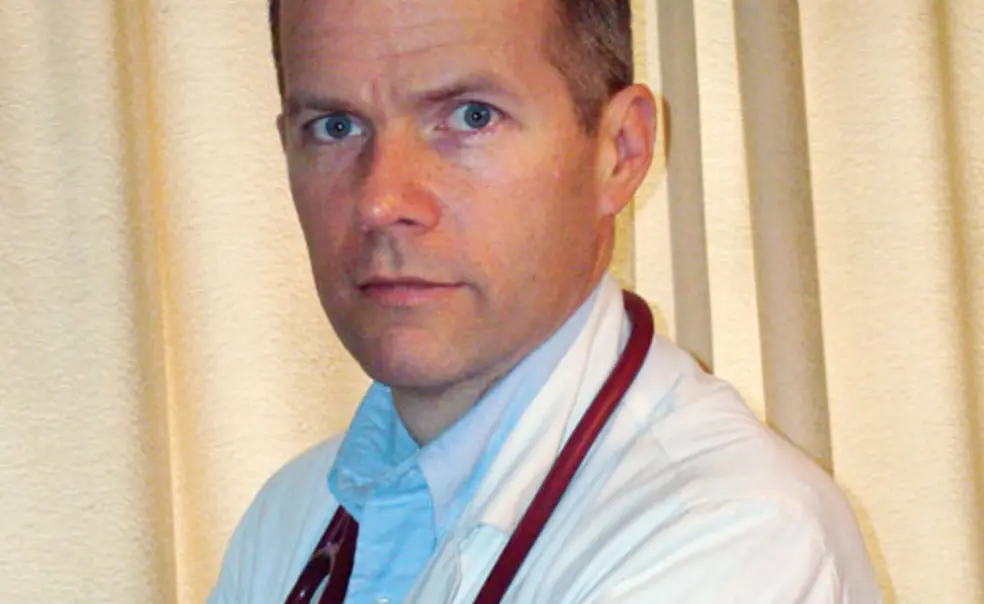Alumni Profile: Brian Bonnyman '85, providing medical care to the poor
When Brian Bonnyman ’85, a family physician in Knoxville, Tenn., referred patients in his suburban practice to specialists, his colleagues would send thank-you notes, fruit baskets, or even crystal.
His new patients are not in such demand. In January, Bonnyman left his practice in an affluent section of his hometown of Knoxville to join the staff of a community health center nearby, and many of the people he treats now are unable to pay and have unstable life situations that make it difficult for them to appear for appointments. The two populations are separated by just one digit in their zip codes, but their access to care is starkly different. “This is a tale of two cities,” Bonnyman says.
At the community health center, which is run by the nonprofit Cherokee Health Systems in Appalachia, the people Bonnyman cares for tend to be uninsured or receive coverage through government programs, such as Medicaid. Many are recent immigrants. Some are homeless. Those without insurance pay on a sliding scale with reduced fees.
Some of Bonnyman’s patients have not seen a doctor for 20 years, and many can’t afford the medicines or treatments needed to keep chronic conditions in check. Some of his patients have conditions that usually are found in people who are 20 or 30 years older.
Bonnyman hears deeply disturbing stories: A 37-year-old construction worker he recently saw injured his knee a year ago; because he had no insurance, he couldn’t get needed surgery. Now, the damage is irreversible, and the man cannot work because of the pain. Another man, in his mid-40s, lost his job — and his health insurance — and no longer could afford prescribed medications for his heart condition. The man had a massive, but preventable, heart attack in June, Bonnyman says. “There’s a lot of shouting about health-care reform,” he says. “The patients that come see me aren’t shouting, but they are suffering. And I wish more people could hear them.”
While working in his suburban practice, Bonnyman volunteered once a month in a nonprofit clinic. But the death of his and his wife’s parents over the past four years, and the diagnosis four years ago of his wife’s breast cancer, caused him to reassess his life and how he was using his skills. Though immensely grateful that his wife was now thriving, he asked himself whether it was fair that she had received cutting-edge care while others in the community with similar medical conditions could not receive even the most basic treatment. He took inspiration from Dr. Paul Farmer’s work in Haiti and from a mentor who pointed out that Bonnyman didn’t need to travel around the world to find underserved patients — they were in his hometown.
There are not enough doctors and nurses to care for people without financial resources, he says. At his health center, patients wait up to three months for an appointment. The sickest patients are sent to a clinic for the homeless that Bonnyman staffs, where they are seen within a week. “Our goal is to keep them alive until their main appointment,” he says.
As for the ongoing debate over health-care reform, Bonnyman offers no specific suggestions. “In terms of politics, I don’t really care what they do about this system,” he says. “I don’t care what they name it or label it. I just want patients to get care if they need it.”












No responses yet